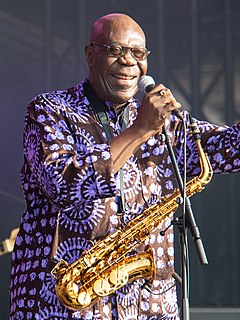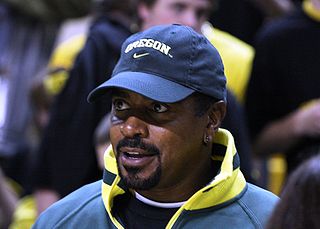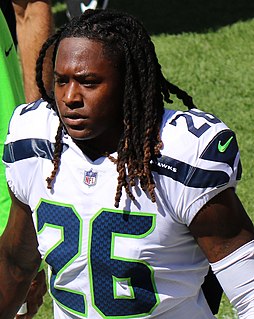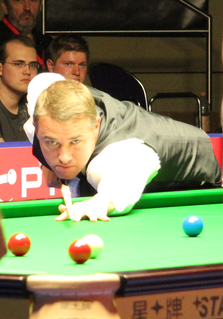A Quote by Manu Dibango
Well, talking about Ethiopia is like talking about the whole continent. A month ago we played against AIDS and famine. We also played in Dakar. It is not only the music which is playing an important role on this issue of problems affecting Africa, but the activities of doctors, sportsmen and journalists are also helping in various ways.
Related Quotes
She [Hillary Clinton] knows the people well. I think there is - you know, also talking about breaking down barriers and talking about that, whether we`re talking about that in economic terms. I mean, she`s the only person who has been out there talking about white privilege and talking about sort of the intersectionality of some of these issues.
My first AIDS campaign was in 1985. There was this dark cloud, everybody was socially inspired - we hadn't seen social consciousness like that since the '60s - but most people were talking about hunger in Africa. Nobody was talking about this really ominous circumstance here in the U.S. because of this fear of stigma.
Honestly, when you start talking about genres, you're talking as much about the business side of writing as anything else. Certainly there are elements of reader expectation that play into various genres, and those are important, but it also becomes about packaging, placement, audience....In the end, I'm not a fan of labels. I think the best fiction blurs the boundaries between genres, stretches and breaks them.
When we speak about a culture of violence in the American society, we're not just talking about the mass killers. We're also talking about that we, as a society, and many of us as individuals accept violence as part of life because we have become numb to it, being so exposed to it in various forms of media.
Take the life issue. This issue requires a president and an administration leading our nation to understand the importance of life. This whole faith-based initiative really ties into a larger cultural issue that we're working on. It begins to affect the life issue, as well as the human dignity issue, because when you're talking about welcoming people of faith to help people who are disadvantaged and are unable to defend themselves, the logical step is also those babies.
To show that a comedian on stage in India talking about sanitation or in South Africa talking about HIV and AIDS awareness, if you follow the joke into their lives, you can see that, like, oh, these things aren't just contrived in joke books. This is real life. I think the best comedians have that bravery and courage to say, Oh, this is what it is.





































